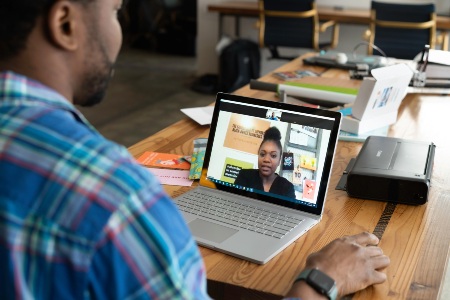Three Ways the Pandemic Has Changed Leaders for the Better: Insights from the Leading with Humanity” Report”
The pandemic has changed everything and, not surprisingly, this includes leaders and the very notion of leadership. But how?
The Institute of Coaching (IOC) at McLean Hospital, an affiliate of Harvard Medical School, recently conducted an in-depth, groundbreaking inquiry into the impact of pandemic-era breakdowns on organizations, leaders, leadership, and leadership coaching.
According to the report, “Massive disruptions to schooling, businesses, employment, workplaces, and private lives have had a severe impact on psychological well-being, with symptoms of grief, depression, anxiety, and addiction at all-time highs.” With these serious challenges in mind, the IOC has identified specific areas of focus that are now being addressed in today’s workplace.
Prioritizing people and connections over performance and business outcomes, supporting the whole person, and personal transformation among leaders rose to the forefront. Coaching has also played a critical role in how leaders navigated so much fear, uncertainty, and change.
Given our age of accelerating and unpredictable change, where the only certainty is that we will continue to face ongoing global disruptions, supporting our own and others’ humanity may well be the crucial recipe for sustaining individual and organizational success.
People First
While we separated physically during the pandemic, we came together in so many ways, which has been good for both people and business. As the report states, “Given our age of accelerating and unpredictable change, where the only certainty is that we will continue to face ongoing global disruptions, supporting our own and others’ humanity may well be the crucial recipe for sustaining individual and organizational success.”

I always felt the real secret to leadership goes back to more adaptive leadership styles, which is connecting with people, bringing out who they are, bringing psychological safety into every conversation, showing empathy, building teamwork, where people can show up and be vulnerable.
Leaders Transform
Being a leader during the trials of COVID has been incredibly stressful, but it was an experience that was not wasted. Many began to question and reassess their own values, both personally and professionally. They practiced ways to better lead their workforce and retain skilled employees by focusing on flexibility and more opportunities for collaboration. Leaders grew in ways that enabled them to better serve their organizations and their staff.

Positive coaching outcomes include improvements in self-awareness, communication skills, emotional intelligence, self-regulation, adaptability, team skills, people development, and workplace resilience.
Coaching Matters
A fast-growing number of leaders are turning to coaching due to its numerous transformational benefits.

As one leader said, “To have a coach to be a mirror, to connect with and to challenge your lens of who you are, why you’re here, and to impact what you do, has been critical in my own transformation.”
Going forward, it’s clear, now more than ever before, professional coaching can and will continue to benefit organizations, leadership, and employees in meaningful and lasting ways as businesses continue to navigate the ongoing impact of the pandemic and respond to what’s being called for in the next future of work.
Read the full Leading with Humanity report by the Institute of Coaching.
Are You Ready?
Get in touch with us to schedule a demo and see how AceUp can help you build a premier coaching program for your top talent.